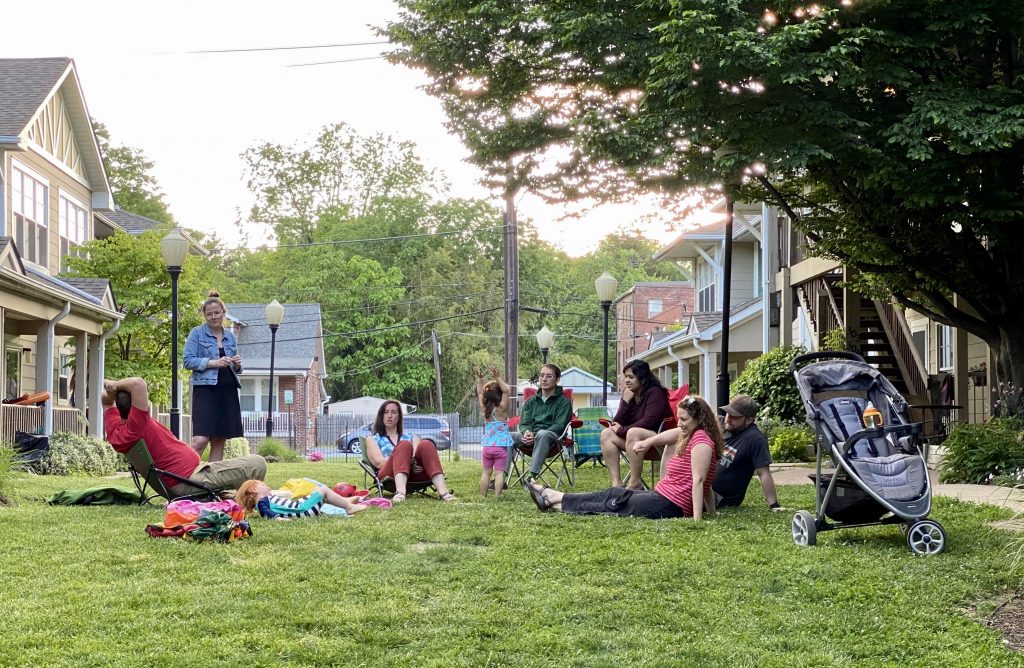Good Enough Cohousing

I launched my career in cohousing five years ago at my first national cohousing conference. The folks in Nashville welcomed me with open arms – both the locals in Germantown and the gathered community of cohousing believers.
As a newbie consultant, I was particularly interested in learning from the experienced process folks. They generously shared their stories and advice. Among other things, they told me that I’d never make a living in cohousing. Cohousing clients are the work you do for fun, they said. Cohousers are a joy to work with, they have amazing energy and they feed you homemade goodies. To make a living, you’ll need other kinds of clients, like corporations.
Never one to be easily dissuaded, I set out to prove them wrong. It’s not that I thought I was smarter than them or a better consultant. It’s that I believed so strongly in cohousing. With close to 300 forming and living communities in the US, there was plenty of potential market. Living in cohousing had convinced me that those communities need relationship help. There had to be a business model that could work.
I was wrong. Not about the market or the difference a good consultant can make to a community. I still believe those things. I was wrong about the need.
I’ve spent the last five years telling the cohousing world how much better life can be if communities will invest in their relationships the way they invest in their houses. I tell them they can make more effective and efficient decisions, work through conflict productively and experience greater connection.
It’s all true. If you, or your group, or some of your group is willing to invest time, money and vulnerability, you can have all those things.
I suspect that it was because I value those things so highly that I confused my wanting them with everyone needing them. If I’ve learned anything in this work, it’s that I don’t get to decide what someone else needs. I don’t get to say what someone else should do. That’s up to them.
As I’ve worked with communities across the country, some people tell me that their work with me has changed their lives, improved their community relationships and spilled over to improve their work lives and family connections. They tell me I’m very good at what I do. And in every community I work with (and presumably lots that I don’t) there are people who say that they don’t need the kind of support that I and other consultants offer. They are right. They don’t need it.
I had failed to take into account how truly amazing cohousing is. Even without the boost to communication and relationships that a good consultant can provide, cohousing is pretty great.
I’ve come to call this “Good enough cohousing”. It’s a place where people care about each other and support each other. It’s a community where if you fall off your bike, neighbors will run to your rescue. It’s common meals and front porch chats, borrowed tools and seasonal celebrations. Odds are some personal growth sneaks in too.
“Good enough cohousing” is way better than any subdivision I’ve ever lived in. It far surpasses the “active living” community where a friend has lived for two years without discovering a friendly neighbor willing to feed her cat while she’s away. The clunky consensus process and conflict avoidance that are so common in cohousing don’t take any of that away. Good enough cohousing is amazing. If you’ve found your community and it’s meeting your needs, I celebrate that as a great success. We need more places in the world where neighbors take care of each other as cohousers do.
If you want more, cohousing is a great opportunity for that too. Just know that it’s not easy. Rich, strong relationships take work. The various structures of cohousing support that work, but they don’t make it happen.
Some of the work is studying, but more of it is the harder work of looking at ourselves, noticing the ways in which our behaviors don’t support our values, and opening ourselves to change. It’s vulnerable. Much of it is healing and rewarding, but sometimes it hurts. A lot of it is learning new ways of doing things. Humans tend to resist that. It’s easier to learn with others, with some structure, and with support from someone who swims in these waters often.
Fortunately, life has brought me to a moment in which I don’t need to make a full time income doing cohousing work. I’m letting go of a business model that involves convincing the cohousing world that they need better relationships. Instead, I’m opening myself to those who want more than good enough cohousing.
If you find yourself wishing for meetings that leave you more in love with your community or positive outcomes from disagreements, let’s talk. If you want deeper conversations, cooperative culture skills and greater connection in your world, look me up. When you are ready to invest in your relationships, to welcome the richness of vulnerability including the hurt that sometimes comes with it, when you are ready to try things you never thought you would try, it would be my honor to walk that labyrinth with you.
Cohousing works incredibly well for most folks, and it isn’t for everyone. Deeply connected, growth-inducing cohousing isn’t right for every cohouser, but it is for some. It is for me. Maybe it is for you too.
Karen Gimnig Nemiah
https://connect-collaborate-grow.mn.co
Category: Living in Cohousing
Tags: living in cohousing, relationships
Views: 19063

